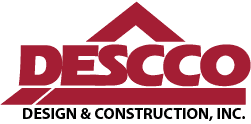Planning a new construction project can be very exciting. It’s easy to get swept up in the many decisions to be made and in envisioning the finished product, but you also have to worry about financing your project, and while you may be happily anticipating some things about building or renovating your space, you might also be dreading the process of getting a construction loan. Financing a commercial construction project can be a little stressful, but it doesn’t have to be a painful process! We’ll walk you through some of the basics here to help you get started.
What is a Construction Loan?
Construction loans are a type of short-term financing usually issued by a bank, specifically for financing a construction project. Commercial loans are not the only kind of construction loan (residential ones are also common), and sometimes they might be called something different, like a renovation loan, new construction loan, land purchase loan, or expansion loan. At the end of the day they’re all referencing a commercial construction loan! These loans can be put towards buying property to build on, buying building materials, hiring employees, and other construction necessities.
What are the Requirements for a Construction Loan?
In order to qualify for a construction loan, you will need to prove that both you personally and your business can be trusted. This will include establishing your creditworthiness, demonstrating acceptable debt ratios, presenting a plan for the construction project that details how you’ll get to the desired end result, and showing business and personal tax records and financials. Different lenders have different requirements as to what they will and won’t accept for each of these benchmarks. You’ll also need to be prepared for the down payment.
What Information Do I Need?
As with all loans, your credit and/or your business’s credit will be checked to make sure that it’s in good shape and proves you’re a trustworthy borrower. Your business’s debt-to-income (DTI) ratio will also be looked at. The restrictions for what DTI ratio is acceptable will vary from lender to lender, but generally, the lower it is, the better. A lender might inquire into your experience in your industry, and they will also most likely require you to be able to identify a qualified, trustworthy builder and show a plan for the construction. The lender will also want to check that your taxes and your business’s taxes are in order and that your payments are current, so you’ll need a current profit and loss statement ready.
What is the Process for Getting Qualified?
Once you’ve worked with your contractor and come up with your construction plan as well as gathered all of your necessary information, it’s time to apply for your loan! Once they’ve received it, the lender will process your application by going over all of the information they have about you to decide if they can trust you as a borrower. This process will typically take some time, at least a few weeks, and the lender may have follow-up questions or require more information from you during the process, so make sure they have up to date contact information and that you are reachable. Once you’re approved for the loan, the closing process begins. You and the lender will go over the loan agreement, including all of the dates and milestones of the construction process, make sure everything is as you’ve agreed on it, and sign the paperwork. Once that’s been completed, you’re finally ready to start!
Securing financing for your project might not be the most enjoyable part of commercial construction, but it is one of the most important, and if you’re prepared going on and you know what will be expected of you, it doesn’t have to be difficult either! If you’re planning a commercial construction project and are looking for a trustworthy contractor to work with, DESCCO Design and Construction can help you! We are one of the premier choices for business owners in the area of Greater Reading, PA, with over 45 years of experience. Contact us today to start discussing your project!
